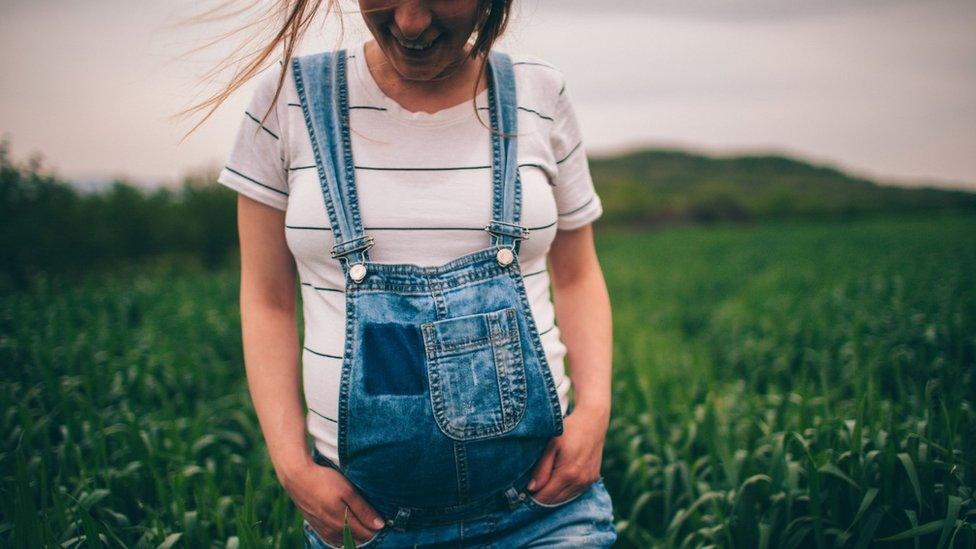'Not holding my stillborn baby is my biggest regret'
- Published
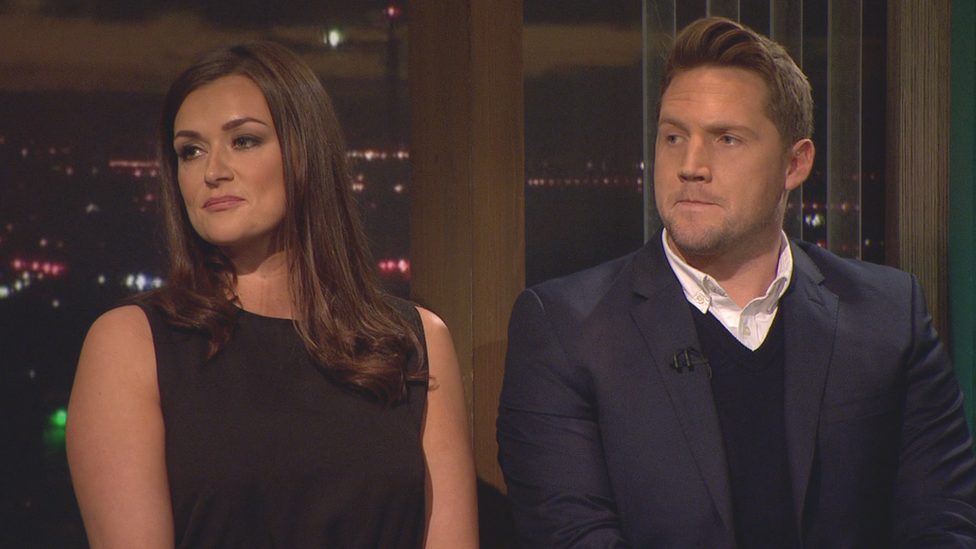
Lisa Hague and Kris Commons lost their daughter Lola 10 years ago
Refusing to see or hold her stillborn child is the "biggest regret of my life", according to Lisa Hague.
It is 10 years since she lost her daughter but Lisa told BBC Scotland's Timeline programme she wished she had spent time with Lola.
Lisa, who is the partner of former Celtic and Scotland footballer Kris Commons, said it was vital to raise awareness of what parents go through.
She said she did not have a clue what to do when it happened to her.
Lisa told the programme she went for a scan one morning at eight and a half months pregnant and doctors discovered there was no heartbeat.
"It was shocking," she said.
"We didn't know anybody else at that time who had ever lost a stillborn baby."
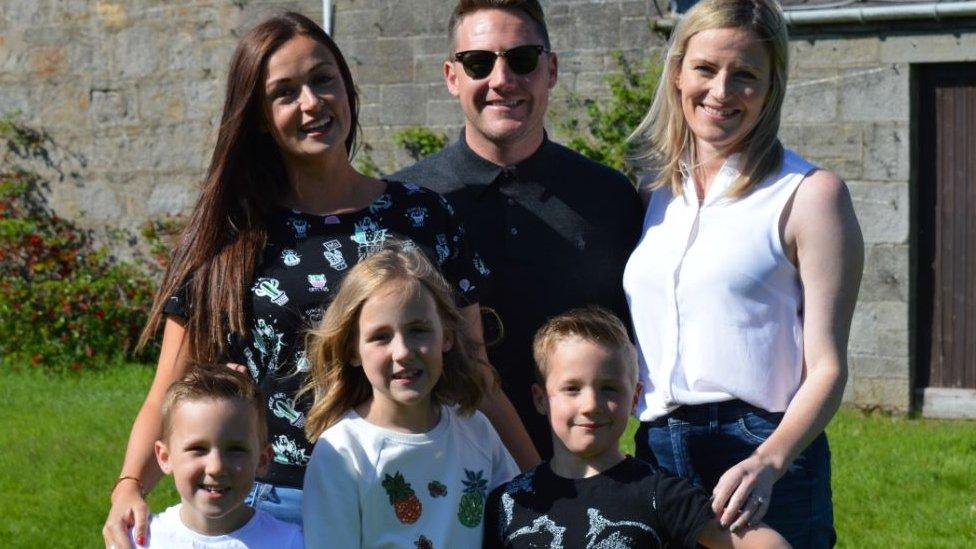
Lisa and Kris (seen here with documentary presenter Mairi Rodgers (right)) have had three more children
Lisa, who was just 22, said she and Kris did not know what to do or how to behave.
She was given the opportunity to hold her child, whom they named Lola, but was scared of what the experience would be like and refused.
Lisa, who has since had three further children, is campaigning to tell people what happens when a baby dies at birth.
She says: "It is normal to hold your baby when they have passed away and it is normal to spend time together."
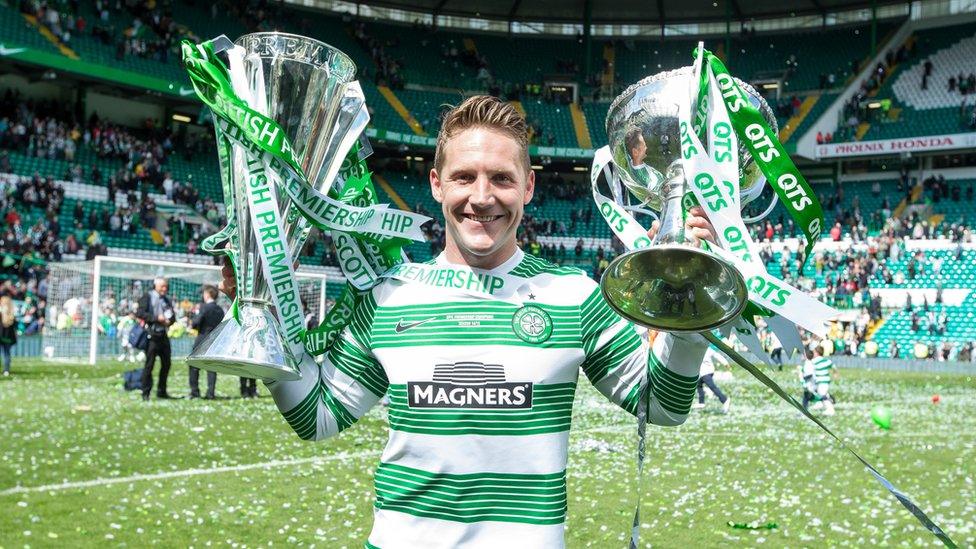
Kris played for Celtic for six years
Kris, who retired from top flight football last year, said he did not want to hold his stillborn child because he thought it would be "a scary, frightening experience".
"It was something that I wasn't prepared for," he said.
"It was something we didn't have a clue about."
Kris also said he was surprised and shocked to find out that Lisa had to deliver the baby naturally after she was found to be stillborn.
Back to normality
He said it was important for more people to know about what happens when a child dies at birth.
"My main concern was obviously Lisa," he said.
"I had no idea. I didn't know whether it was normal to be emotional."
Kris Commons told how he went back to work two days after losing his daughter to try to get back to normality.
"I wanted to show I was a man and be strong for Lisa," he said.
"I wanted to show everyone I was ok but I think along the line you do need to speak to people."
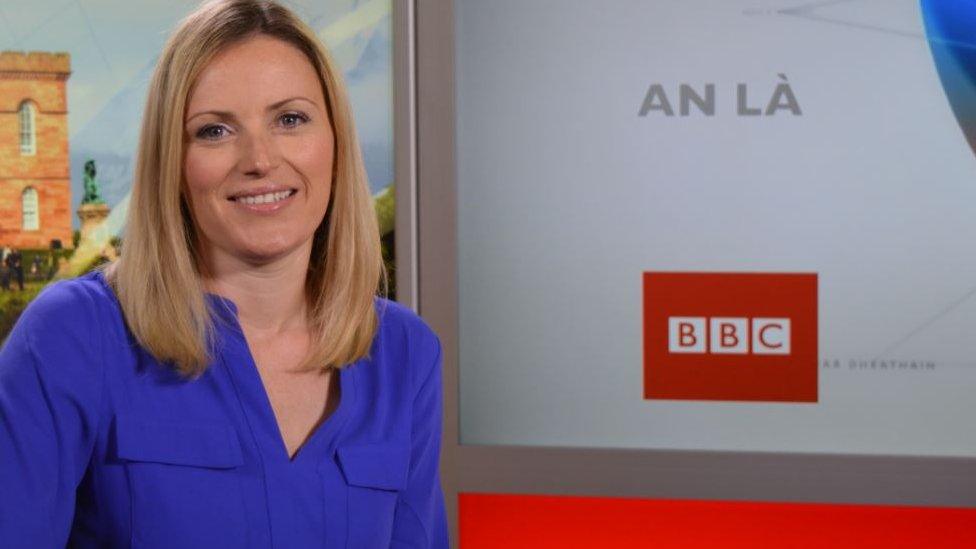
Mairi Rodgers made the documentary after losing her own baby two years ago
The couple have taken part in a documentary made by BBC Alba presenter Mairi Rodgers, who lost her own daughter, Annie, when she was five months pregnant, two years ago.
Mairi said she too had been scared of seeing and holding her baby.
"We were advised it was probably the best thing to see her and to hold her but my husband Lachie did not want to see her," she said.
"But actually after she was born he changed his mind and it just felt very natural to hold her."
Mairi said spending time with your stillborn child was very important and helped parents to make memories.
She also said talking about the experience was important.
"Talking is healing," she said.
"I didn't talk about Annie for almost two years but I am so glad I can talk now openly and honestly about her."
She said making the programme, which looks at the ways of helping mothers and fathers to cope with their loss from stillbirth and miscarriage, had made her stronger.
"I feel like Annie is now part of our family whereas before she was something awful that had happened.
"Now she's a daughter, a sister, a granddaughter."

Stillbirths in Scotland
A stillbirth is recorded when a child is delivered after the 24th week of pregnancy and does not breathe or show any other sign of life.
Last year in Scotland there were 225 stillbirths.
There were 52,861 live births.
The stillbirth rate is 4.2 per 1,000 live births.

Memory box
Lisa is now an ambassador for charity SiMBA, which supplies memory boxes to mothers of stillborn babies.
She said her memory box, which contains hand and footprints of Lola and photographs, has become one of her most treasured possessions.
Lisa told the BBC Alba documentary, Labour of Love: "I remember them giving me my box and thinking 'seriously, you are giving me a box'.
"I'm supposed to walk out with a baby and I get a box."
"I hated this box. I took it home and flung it in the living room.
"But I quickly warmed up to the box and now if my house was on fire that would be the first thing that I would take."
Lisa has also set up the Lola Commons fund which is intended to raise funds to create special care rooms for grieving parents at every maternity unit in Scotland.
She has donated 20 cuddle cots to hospitals.
"It is basically like a Moses basket that's got a cooling mattress underneath.
"Unfortunately when a baby does pass way they do change and they do deteriorate so this slows down what happens to the baby," Lisa said.
"It just means you get to spend more precious time with your baby."
- Published22 June 2017
